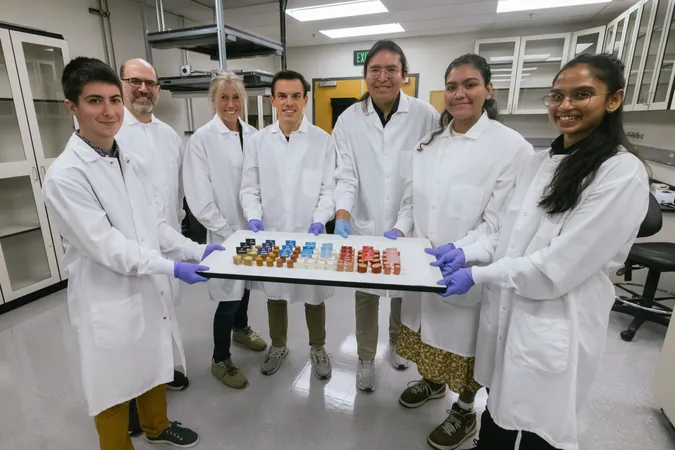
Breakthrough Research at Concordia University Sheds Light on Aging and Cardiovascular Health!
2024-11-04
Author: Jacques
Since 2018, Concordia University’s Claudine Gauthier has been making waves as the holder of the prestigious Michal and Renata Hornstein Chair in Cardiovascular Imaging. An associate professor of physics, Gauthier has dedicated her research to understanding the intricate relationship between coronary artery disease, other cardiac conditions, and their effects on the brain, all while emphasizing the crucial roles of sex differences and aging.
Gauthier's innovative approach melds biology, neuroscience, and medical imaging, unlocking new frontiers essential for the health of women and individuals with congenital heart disease. But that’s just the tip of the iceberg!
Unraveling the Connection Between Heart Disease and Brain Health
With funding primarily from the Montreal Heart Institute Foundation, Gauthier's research tackles a pivotal yet often overlooked area: the impact of cardiovascular disease on brain health—especially in relation to the risk of cognitive decline. Gauthier states, “Individuals with cardiovascular disease exhibit a higher likelihood of experiencing cognitive decline as they age, yet the exact effects on brain health remain elusive.”
Her team's groundbreaking studies have already revealed vital insights, particularly regarding the "oxygen extraction fraction"—a key marker illustrating the balance (or lack thereof) between the oxygen supplied to the brain and its corresponding usage. Gauthier emphasizes, “This imbalance is most pronounced in individuals at stroke risk, indicating that areas of the brain might appear healthy yet are not receiving sufficient oxygen, rendering them susceptible to future damage.”
Sex Differences and Menopause: A New Frontier
In an exciting new direction, Gauthier has turned her focus to the effects of menopause, an under-researched period with significant repercussions for those who menstruate. "We're observing that in cisgender women, brain aging is substantially influenced by menopause, particularly due to a reduction in protective hormones like estrogen," she notes.
But that’s not all—Gauthier is collaborating with the Université de Montréal Heart Institute to dive into how physical exercise impacts cognitive health, particularly in young adults with congenital heart conditions. “While exercise is widely recommended for cardiovascular health, its specific benefits for cognitive health in these individuals remain uncertain,” she elaborates. Preliminary findings show notable sex differences; cisgender men seem to gain more from exercise intensity, while cisgender women benefit more from the overall volume of physical activity.
A Multidisciplinary Approach to a Global Health Concern
Pascale Sicotte, the dean of the Faculty of Arts and Science, applauds the significance of Gauthier's research within the academic community. “Claudine Gauthier's work is vital for public health, especially in understanding how aging and healthy aging differ between genders. We're proud to support researchers who tackle global health issues from a multidisciplinary angle.”
As the renewal of the Michal and Renata Hornstein Chair approaches this fall, Gauthier is set to continue placing the spotlight on the health of women and vulnerable populations, ensuring that Concordia's research remains relevant and impactful.
What Does This Mean for You? Understanding Aging and Health is Key!
These revelations could revolutionize how we approach aging and cardiovascular health, shedding light on vital differences between the sexes and guiding future health initiatives that prioritize women's health, particularly during and after menopause. If you're interested in the intersection of heart health and cognitive function, stay tuned—this may just be the beginning of a health revolution!









 Brasil (PT)
Brasil (PT)
 Canada (EN)
Canada (EN)
 Chile (ES)
Chile (ES)
 España (ES)
España (ES)
 France (FR)
France (FR)
 Hong Kong (EN)
Hong Kong (EN)
 Italia (IT)
Italia (IT)
 日本 (JA)
日本 (JA)
 Magyarország (HU)
Magyarország (HU)
 Norge (NO)
Norge (NO)
 Polska (PL)
Polska (PL)
 Schweiz (DE)
Schweiz (DE)
 Singapore (EN)
Singapore (EN)
 Sverige (SV)
Sverige (SV)
 Suomi (FI)
Suomi (FI)
 Türkiye (TR)
Türkiye (TR)